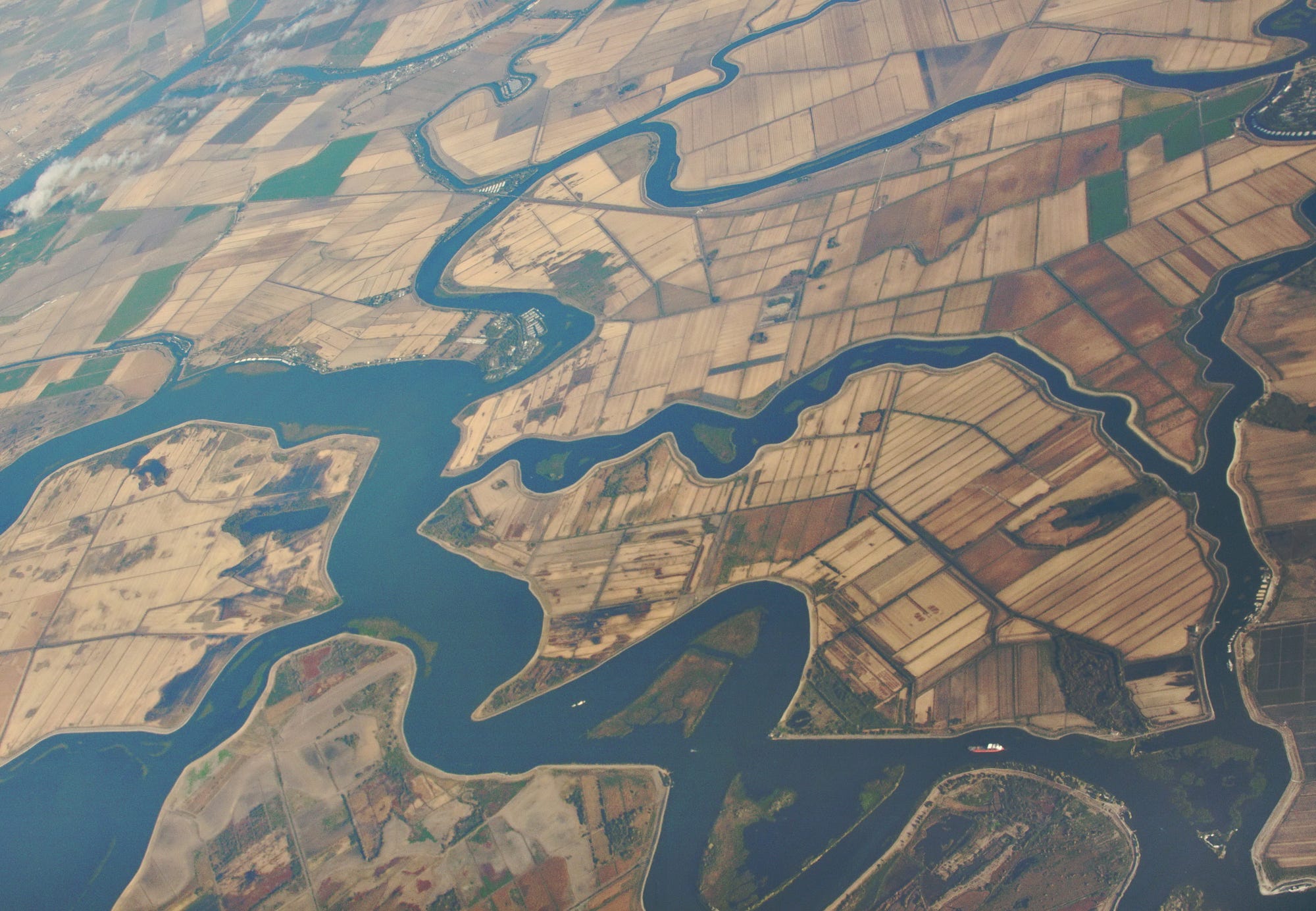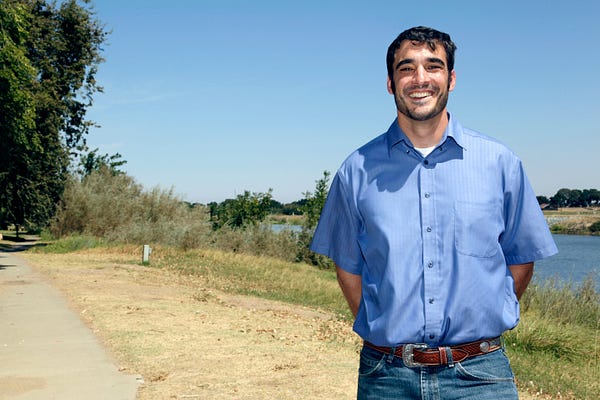
Farms and Fish
Diverting precious water from California’s Sacramento-San Joaquin River Delta is misguided — and the Senate must stop it from happening.
Growing up on his family’s pear ranch in the rich delta headlands a two-hour drive east of San Francisco, Brett Baker spent idyllic days roaming the orchard, picking wild blueberries, and fishing the fertile marshes and streams of nearby Steamboat Slough.
Fish and fruit remain near the heart of Brett’s life even now, especially when he serves his wife and their young daughters fresh-caught smallmouth bass with a dollop of homemade pear chutney. “Just a diced Bartlett pear, some fresh homegrown tomatoes, a little bit of onion, and a jalapeño pepper,” he told me on a recent sunlit day, amid the pampas grass, cottonwoods, and pepper weed of the Sacramento-San Joaquin River Delta.
Not too surprisingly, Brett, a sixth-generation pear farmer with a biology degree, soundly rejects the false choice between farms and fish that some policymakers in Washington, D.C., want to force on the people of California. “It shouldn’t be farms versus fish,” Brett said. “Both need fresh, clean water.”
That’s exactly why the U.S. Senate needs to kill H.R. 2898, a pernicious bill the House passed in July, which pits big agricultural interests against wildlife habitat and all they support. The Senate Energy and Natural Resources Committee has scheduled a hearing on the legislation October 8. This bill needs to be rejected.
The bill would misdirect delta waters, starving marshes, rivers, and streams. It would gut essential protections for fish and other wildlife, threatening thousands of fishing jobs that depend on healthy salmon habitat. It wouldshunt aside California’s own environmental safeguards. And it would derail an effective program to restore the San Joaquin River, which once hosted the state’s second-largest salmon run.
Little wonder President Obama has threatened to veto this misguided legislation if it makes it out of Congress. It shouldn’t survive the Senate. Here’s why.
California is listing through its fourth year of epic drought, the region’s worst in centuries. And it’s exacerbating a long-term problem. In dry years and wet, the state uses more water than its rivers and underground aquifers can sustainably provide. How big is the gap? Enough to cover the entire state of New Hampshire with water a foot deep.
Our response, though, can’t be to divert even more precious water to corporate agricultural interests, leaving even less for fisheries and wildlife. Ifwe’re smarter about how we use water in California, the state will have all it needs.
Wise management means using recycled water to irrigate landscapes and crops. It means capturing stormwater in urban areas, replacing turf grass with native and drought-tolerant plants, and upgrading plumbing fixtures and appliances with a new generation of water-saving gear. And it means investing in more efficient irrigation systems and techniques for the agriculture industry, which accounts for 80 percent of water use by the people of California.
Farmers like Brett Baker know how well all this can work.
He remembers splashing around in the flooded orchard during irrigation time as a boy. In his teens, though, his family installed sprinklers that target the root systems. The pear trees get all the water they need, but evaporation has been cut roughly in half, reducing overall water use by roughly 15 percent. That means real savings for the family orchard — and real benefits for the Sacramento-San Joaquin River Delta and all it supports.
On a cloudless late August day in the delta, a great blue heron glided low over the cattails, a reminder of the rich bounty of wildlife the region struggles to support. The delta connects the headwaters of two of California’s biggest rivers — the Sacramento and the San Joaquin — to the San Francisco Bay and, from there, the Pacific Ocean.
The delta relies on seasonal rains and annual snowmelt from the Sierra Nevada Mountains to the east. But it’s clinging on to survive as the result of decades-old dam and diversion projects that send too much of the delta’s water to the almond, produce, and fruit farms to the south and, further still, to the urban centers of Southern California.
That leaves the San Francisco Bay suffering a perpetual shortage of water. In good years for rain and snowfall, about half of the water is diverted away from the delta. Even more is diverted when precipitation is short, as in drought years like this one.
The diversions all but dried up the San Joaquin River decades ago. Followinga 1998 NRDC lawsuit, though, California developed a plan to restore the San Joaquin and the salmon, sturgeon, and other fish that depend on its flow. We’re making good progress and need to stay with the program, not abruptly change course midstream.
We don’t need bad legislation like H.R. 2898, which would take us in exactly the wrong direction. “Water really is the lifeblood of California,” says Doug Obegi, a senior attorney with NRDC’s water program. “When we use water more efficiently, we’re helping to make sure that we can sustain our economy and save these special places and wildlife and the communities that depend on them.”


























No comments:
Post a Comment